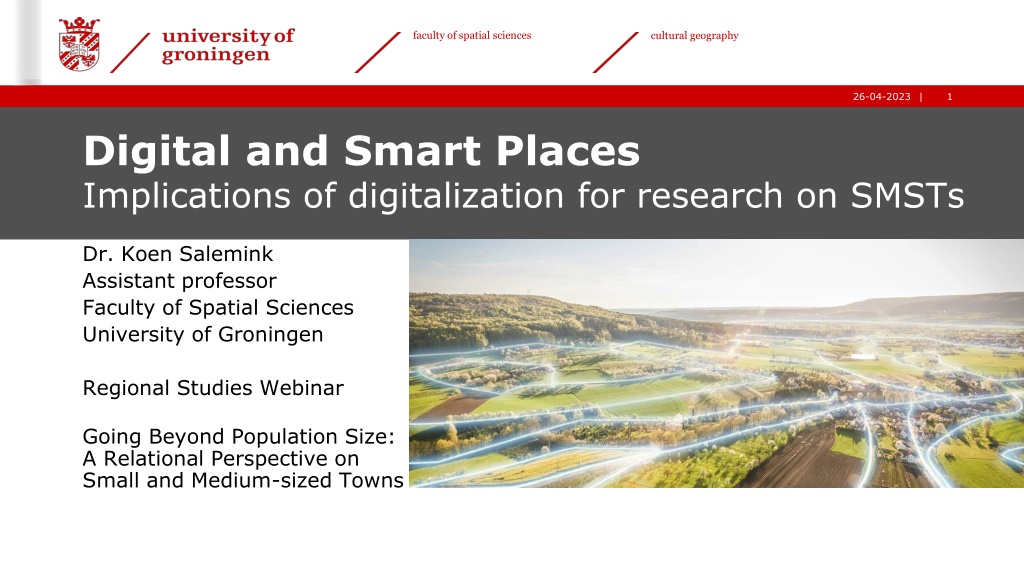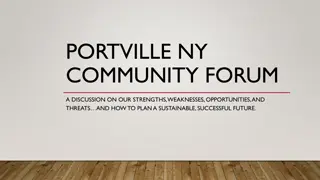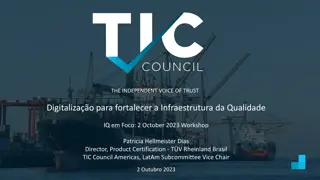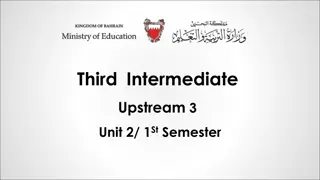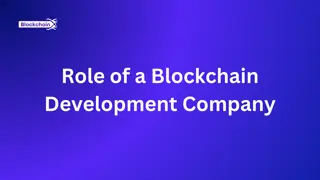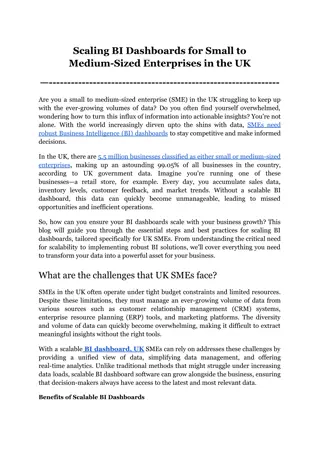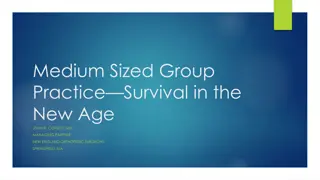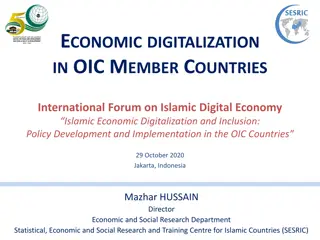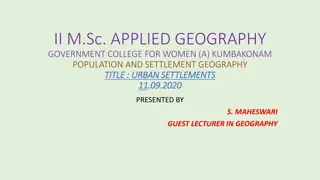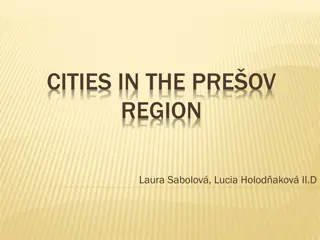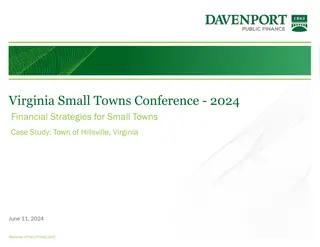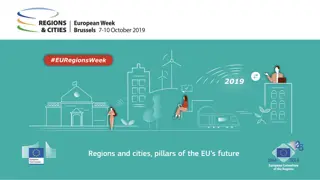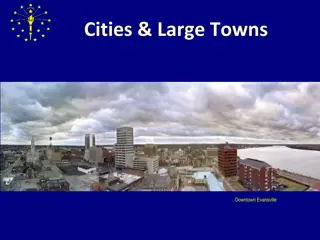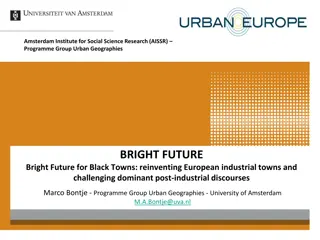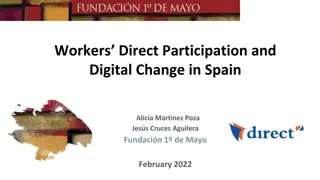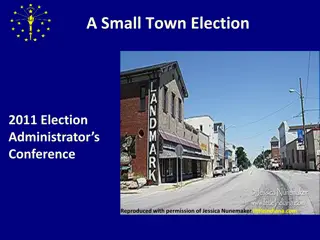Digitalization Impacts on Smart Places: A Focus on Small and Medium-sized Towns
The webinar explores the implications of digitalization for Small and Medium-sized Towns (SMSTs) within the context of cultural geography. It delves into the evolving debates surrounding digital inequalities, the challenges of addressing local (rural) needs through digital adoption, and the role of researchers in negotiating urban-biased pushes. The discussion emphasizes the importance of local agendas for smart towns and villages while considering ways to prevent exclusion of areas lacking the capacity to formulate such agendas.
Uploaded on Sep 29, 2024 | 0 Views
Download Presentation

Please find below an Image/Link to download the presentation.
The content on the website is provided AS IS for your information and personal use only. It may not be sold, licensed, or shared on other websites without obtaining consent from the author. Download presentation by click this link. If you encounter any issues during the download, it is possible that the publisher has removed the file from their server.
E N D
Presentation Transcript
faculty of spatial sciences faculty of spatial sciences cultural geography cultural geography 26-04-2023 26-04-2023 | | 1 1 Digital and Smart Places Implications of digitalization for research on SMSTs Dr. Koen Salemink Assistant professor Faculty of Spatial Sciences University of Groningen Regional Studies Webinar Going Beyond Population Size: A Relational Perspective on Small and Medium-sized Towns
faculty of spatial sciences cultural geography 26-04-2023 | 2 Research aim Negotiate the urban-biased/based push Address local (rural) needs by meaningful digital adoption Different role for researchers
faculty of spatial sciences cultural geography 26-04-2023 | 3 Evolving debates Taking inspiration from the debate on digital inequalities From rural penalty (Hite, 1997; Malecki, 2003) to digital divides (Van Deursen & Van Dijk, 2011; Townsend et al., 2013) to digital inequalities and inclusion (Van Deursen and Helsper, 2015; Salemink, 2016) to inner-rural divides (B rgin et al., 2021; Salemink, 2022)
faculty of spatial sciences cultural geography 26-04-2023 | 4 Urban-biased/based technological push Local champions in small towns and rural areas do exist (Meili & Mayer, 2017) However, I agree with Bosworth and Venhorst (2018) and Bosworth et al. (2020) the sparse nature of rural areas means that more things happen beyond the local area and more change occurs as a result of external factors (ibid: 589)
faculty of spatial sciences cultural geography 26-04-2023 | 5 Key scholarly challenge Policy call for local agendas for smart towns and villages Local actors and stakeholders are primarily responsible How can we prevent that this development excludes towns and villages that lack the capacity to formulate such an agenda?
faculty of spatial sciences cultural geography 26-04-2023 | 6 So, how to respond to this? Rural translation for a rural fit Similar for SMSTs Early engagement of scholars to understand local needs Responsible Rural Research and Innovation Getting access to smartphone apps that easily show where you can order food online, or smart apps that show real-time departure times of buses, will probably not convince rural users the app will show that the user lives outside the delivery area of the restaurant, or that the next bus is due the next day, depending on whether it is a school day. A secure app that might ease the care for an older neighbour, for example by easy video calling for when the caring neighbour is in the city for work, might be more convincing especially if the app does not crash too easily when the connection is flaky. (Salemink, 2022: 136)
